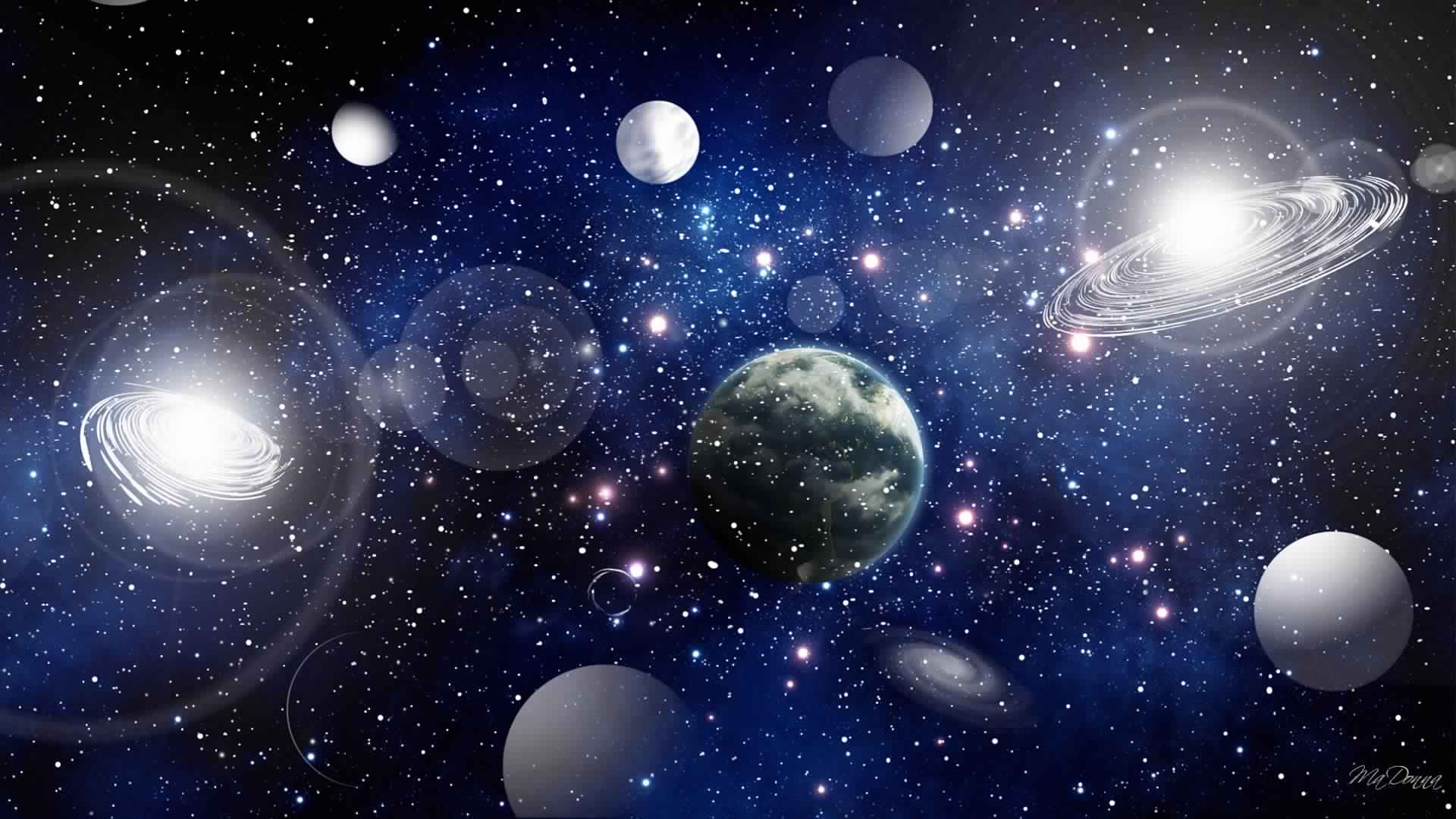Creation of the universe1
One of the oldest questions to be asked about the universe was "How did it begin?" This question always puzzled mankind. The answer to such a question depended on the faith and civilisation current to the scientist.
In the early days of the Greek philosophers, the universe was the making of gods and goddesses, but how they actually performed the act of creation was not to be inquired into, for such matters were considered divine and thus, laid outside man's comprehension. The Greek plan incorporated a marvellous scientific picture of the universe, for whilst they described the motions of the planets with mathematical precision, they believed them to be, like the stars, made of some celestial material that never decayed.
In ancient China, the whole universe, everything on earth and in the sky, was considered part of a giant organism. However, they envisaged a universe that was many millions of years old and, in that respect, they were close to today's view.
Western civilisation has grown up under the influence of Greek ideas and also that of Chinese teachings, which insist on a single God who is creator and sustainer of the universe. The Bible states that God created the universe but does not contain detailed scientific information about the process of the creation of the universe. Galileo used to be fond of saying that the Bible teaches the way to get to Heaven, not the way Heavens go. The Church, which was the dominant force in the land in those days, allowed no speculation into such divine matters. The misfortune of Copernicus, as a result of his statement that it was the sun and not the earth to be the centre of the spherical universe, is well known.
Even after the beginning of the modern scientific period, when Newton had worked out the motions of planets in great detail and also came up with the idea of universal gravitation, people still considered the creation of the universe to be a divine act that lies beyond speculation.
With the vast amount of information that was collected in the last century through the observation of deep space, as well as the development of the Relativity theory and Quantum Mechanics, scientists are at last in a position to work out how the universe began.
Today, speculation and scientific research into cosmology lies outside the realm of religion, to the extent that some scientists today do not consider the creation of the universe to be a divine act at all. However, the same scientists are well aware that when they trace the age of the universe to its origin, or to that moment that sparked the beginning, they too concede that science becomes unable to explain the events of that initial moment, for at that initial moment all the laws of physics seem to break down.
The failure of some scientists to contribute this initial moment of creation to a divine creator stems from the fact that they regard this initial moment as the moment when all the laws of physics break down, rather than being the moment when all the laws of physics came to be, or in other words, when all the laws of physics were set. The question which they do not seem to tackle is: by whom?
The creation of the universe is a subject that is given great attention in the Quran. The huge and varied amount of information contained in the Quran about almost every stage and aspect of the creation continues to astound scientists today because of its very accurate agreement with current knowledge. How can a book written in the 7th century contain such a rich amount of scientific information that was to be attained 14 centuries later? For those reasons, neutral and unbiased observers do consider this to be valid evidence that such a book could never have been the product of any human being.
http://www.quran-islam.org/main_topics/creation_of_universe_

Hi! I am a robot. I just upvoted you! I found similar content that readers might be interested in:
http://www.quran-islam.org/main_topics/creation_of_universe_(P1212).html
Downvoting a post can decrease pending rewards and make it less visible. Common reasons:
Submit
nice
Downvoting a post can decrease pending rewards and make it less visible. Common reasons:
Submit
شكرا لك
Downvoting a post can decrease pending rewards and make it less visible. Common reasons:
Submit
tres bon poste mon ami continues
Downvoting a post can decrease pending rewards and make it less visible. Common reasons:
Submit
Merci bcp
Downvoting a post can decrease pending rewards and make it less visible. Common reasons:
Submit